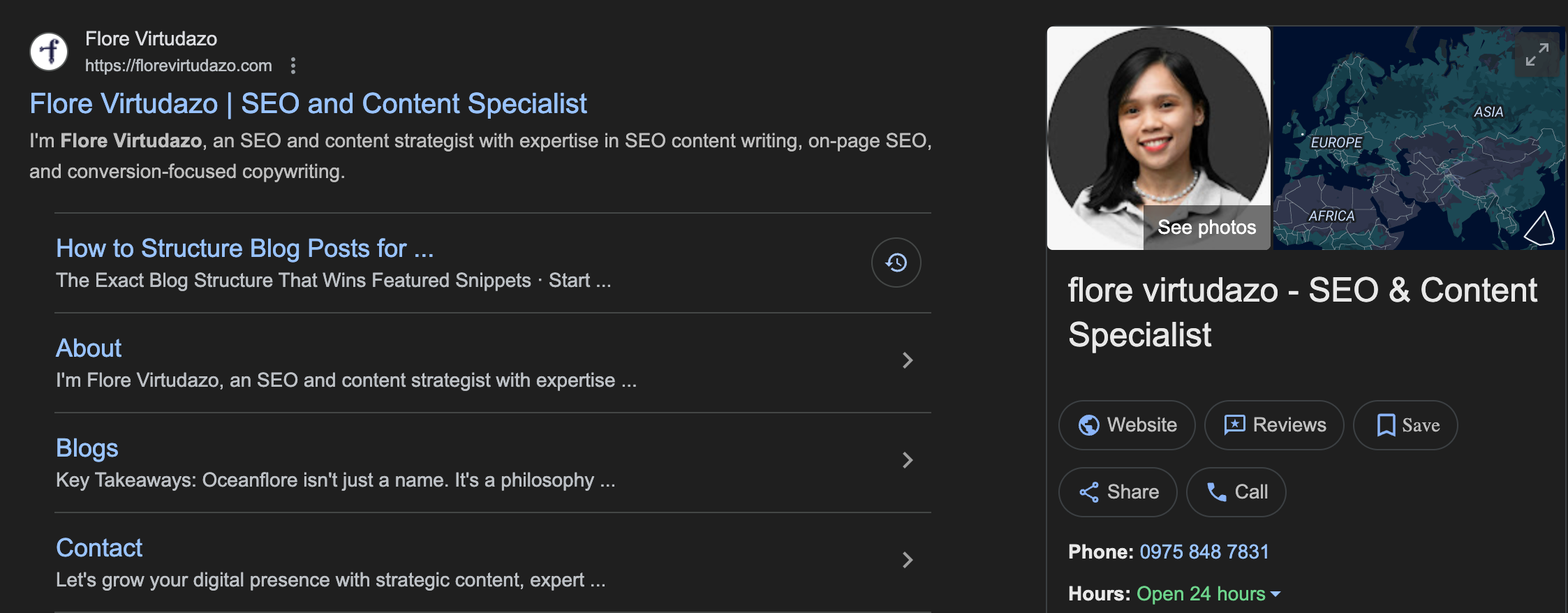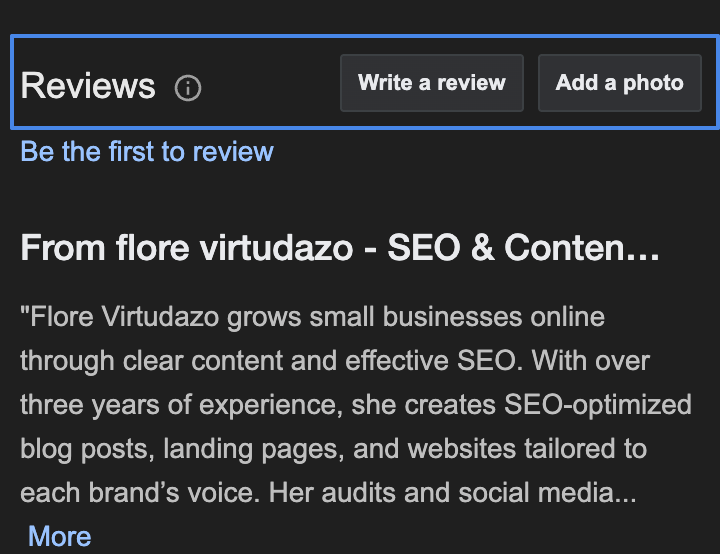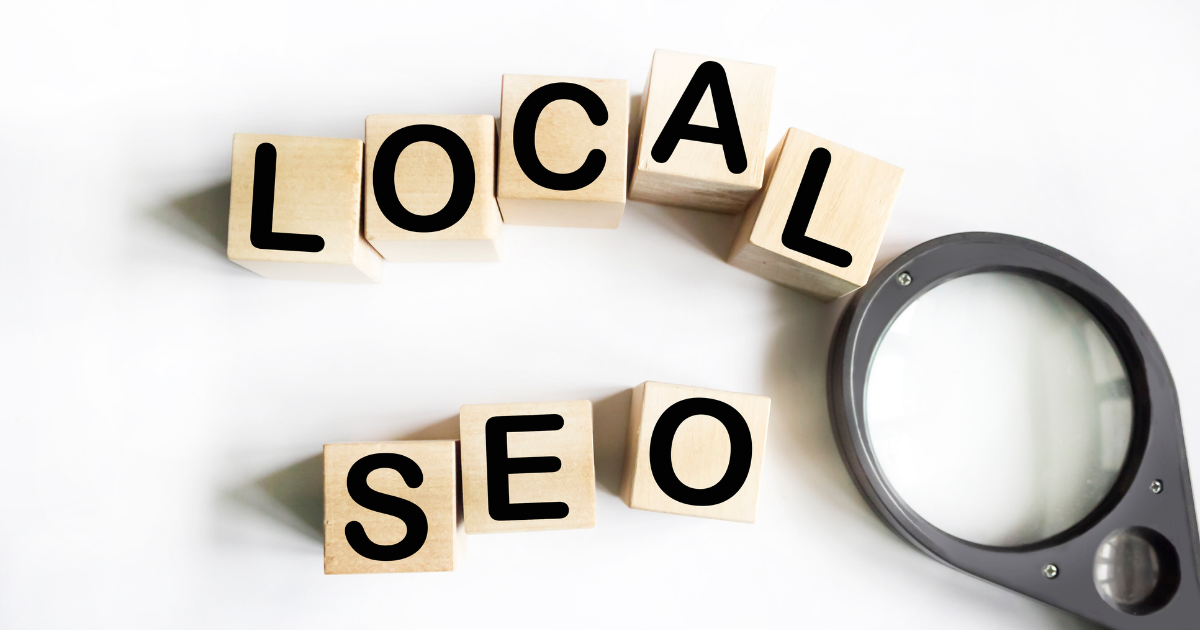Local SEO is the process of optimizing your website and online presence to rank better in local search results. When local searchers type “SEO content specialist near me” or “best digital marketing consultant in my area,” local SEO helps your business appear in the local pack and local search engine results.
Why you need strong local SEO in 2025:
- 80% of people find local businesses through local search every week
- 75% of local search queries will happen through voice by end of 2025
- Local search engine optimization drives more customers than standard SEO
- Local search visibility directly impacts your bottom line
In this complete guide to local SEO, I’ll show you how to do local SEO effectively and improve your local search rankings. These are the exact strategies
I used when I was optimizing my website slowly – and here’s the incredible part: I just went live with my website in April 2025, but look at now, I have a lot of blogs and some of my pages are already ranking!
This rapid success came from applying these local SEO techniques consistently from day one. Now, let’s start with the foundation of all local SEO success – your Google Business Profile.
1. Master Your Google Business Profile for Local SEO Success

Your Google Business Profile is crucial for local SEO success. This business listing appears in Google Map results and local search results, making it the most important local SEO ranking factor.
When I first started my SEO & Content Specialist business, I made the mistake of thinking I didn’t need local SEO since I work with clients globally.
Big mistake! Even online service providers need strong local presence to build trust and credibility.
Essential Google Business Profile Optimization
Local SEO starts with proper verification: Google My Business verification became stricter in 2025. I had to set up my “flore virtudazo – SEO & Content Specialist” profile properly in 2024 to establish my local presence.
New requirements for verification:
- Video verification showing your business location
- Business documents and licenses
- Consistent business information across platforms
- Active management and regular updates
My complete optimization checklist:
- Business name – “flore virtudazo – SEO & Content Specialist”
- Phone number – 0975 848 7831 for direct client contact
- Business hours – “Open 24 hours” for global client availability
- Categories – “SEO Agency” primary, “Content Marketing Service” secondary
- Services – SEO-optimized blog posts, landing pages, website optimization
- Description – Expertise and local keywords naturally integrated
My optimized description: “Flore Virtudazo grows small businesses online through clear content and effective SEO. With over three years of experience, she creates SEO-optimized blog posts, landing pages, and websites tailored to each brand’s voice. Her audits and social media plans help boost traffic, improve conversions, and build real customer connections.”
Content Strategy That Drives Local Ranking
I add fresh content to my Google Business Profile weekly. A well-optimized Google Business Profile with regular updates ranks higher in local pack results.
Content that improved my local ranking:
- Before and after screenshots of SEO results for client websites
- Photos of me working on content strategy and SEO audits
- Client testimonial videos mentioning my SEO and content services
- Screenshots of successful blog posts and landing pages I’ve created
With your Google Business Profile fully optimized, the next step is to dive deep into local keyword research and content optimization – this is where you’ll really start to see your local search rankings improve.
2. Local Keyword Research and Optimization Strategy
 Effective local SEO strategy begins with finding the right keywords. When I started my SEO & Content Specialist practice, I made the mistake of targeting only broad keywords like “content marketing.” Local keyword research targets location-specific search queries that convert better.
Effective local SEO strategy begins with finding the right keywords. When I started my SEO & Content Specialist practice, I made the mistake of targeting only broad keywords like “content marketing.” Local keyword research targets location-specific search queries that convert better.
Finding Local Keywords That Drive Results
Here’s how I discovered the keywords that transformed my business:
High-converting local keyword types:
- Service + location: “SEO content specialist near me”
- Skill-based local: “freelance content writer in my area”
- Near me keywords: “blog writing specialist near me”
- Local intent keywords: “local SEO expert for small business”
My proven keyword research process:
- Start with core services as primary keywords (SEO content, blog writing, landing page optimization)
- Add location modifiers for local search optimization
- Research actual search queries from potential clients
- Use Google Search Console to find existing local search queries
- Analyze competitor keywords for local SEO opportunities
On-Page SEO for Local Search Engine Optimization
Local content I created: I built targeted pages for my SEO and content business – remember, I only launched my website in April 2025, so these results came fast:
- Service pages with local keywords (“Local SEO Content Strategy”)
- Client case study pages showing measurable results
- FAQ pages answering common content marketing questions
- Blog posts about SEO best practices and content trends
The key was creating valuable content consistently from day one, which is why I already have multiple blogs ranking in just a few months.
Strategic internal linking: I connect SEO service pages to content writing pages using local keywords in anchor text. This improves local ranking by showing search engines the relationship between my services.
Once you have your Google Business Profile optimized and your basic keyword strategy in place, it’s time to focus on one of the biggest opportunities in local SEO – featured snippets and voice search optimization.
3. Featured Snippets and Voice Search Optimization

Featured snippets appear at the top of search results and often get read aloud for voice searches. When I was building my SEO & Content Specialist practice, optimizing for featured snippets became a game-changer for local SEO success.
How to Rank in Featured Snippets for Local Search
My featured snippet optimization strategy:
- Target question keywords that business owners ask about content marketing and SEO
- Provide direct answers in 40-60 words
- Use simple language that search engines understand
- Include business information naturally in answers
Example featured snippet I optimized for:
Q: “How often should I publish blog posts for SEO?”
A: “Publish blog posts consistently 2-3 times per week for best SEO results. Quality matters more than quantity – focus on helpful, well-researched content that answers customer questions. Contact Flore Virtudazo at 0975 848 7831 for a custom content strategy that drives traffic and conversions.”
Voice Search and Local Intent Optimization
Voice search queries are conversational and longer than typed searches. My experience shows local SEO optimization must include voice search strategies.
Voice search examples I target:
- “Who’s the best content specialist for small business websites?”
- “What SEO expert can help me write better blog posts?”
- “How much does professional content writing cost?”
Voice search optimization techniques:
- Write content using natural speech patterns
- Answer specific questions business owners ask
- Include service-specific information naturally
- Optimize for immediate content needs and local intent
While optimizing for voice search and featured snippets drives traffic, you need a solid review management strategy to convert that traffic into paying customers and improve your local search rankings.
4. Local Search Rankings Through Review Management

Customer reviews directly affect your local search rankings. When I started my SEO & Content Specialist business, I learned that search engines use review signals as important local SEO ranking factors.
My Review Collection System
Proven review generation process:
- Ask clients immediately after delivering successful SEO content results
- Send review requests via email with direct links to my Google Business Profile
- Make the process simple with clear instructions
- Focus on Google reviews for maximum local SEO benefits
Review response strategy: I respond to all reviews within 24 hours, include keywords naturally, and thank clients while mentioning my services.
Example response: “Thanks Sarah! I’m thrilled my SEO-optimized blog posts helped your online store increase traffic by 150%. I love helping small businesses succeed with clear content and effective SEO strategies. Thanks for trusting me with your content marketing needs!”
Monitoring Local SEO Performance with Reviews
I use reviews to improve my local seo efforts:
- Track review velocity and consistency monthly
- Monitor content for SEO and content marketing keyword mentions
- Analyze competitor reviews for opportunities
- Use insights to improve my content writing and SEO services
Reviews are powerful, but they won’t help much if your website has technical issues that prevent search engines from understanding and ranking your content properly. Let’s dive into the technical side of local SEO.
5. Technical Local SEO and Local Search Engine Optimization
Technical optimization ensures search engines can find your business and rank it properly in local search results. When I was optimizing my website slowly, I learned that technical SEO makes or breaks local rankings.
Website Optimization for Local Search
Mobile optimization essentials: Most local search happens on mobile devices. My SEO & Content Specialist website must work perfectly on phones.
Critical mobile features I implemented:
- Click-to-call phone number (0975 848 7831) for easy contact
- Fast loading speeds under 2 seconds
- Easy navigation for potential clients
- Simple contact forms that work on mobile
- Clear service information display
Local SEO Tools and Performance Tracking
Google Search Console for local SEO: I monitor local search performance using Google Search Console, tracking which keywords bring content marketing leads and identifying local SEO opportunities.
Key metrics I track weekly:
- Local search rankings for “SEO content specialist” and related keywords
- Click-through rates from local search results
- Local pack ranking positions for content marketing services
- Website traffic from local search queries about SEO and content writing
Local rank tracking setup: I use local SEO tools to monitor rankings for content marketing keywords across different locations, tracking how my SEO & Content Specialist business performs for important search queries.
Now that you understand all the core components of local SEO, let me show you exactly how to implement these strategies step-by-step, just like I did when building my business.
Step-by-Step Guide: How to Do Local SEO Implementation
Week 1: Foundation Setup
- Optimize your Google Business Profile completely
- Verify your business with required documentation
- Add complete business information and professional photos
- Start systematic review collection
Week 2: Keyword and Content Optimization
- Research local keywords for your business
- Create service-specific optimized pages
- Add local schema markup for search engines
- Optimize existing content for local search
Week 3: Local Search Visibility Improvement
- Build citations in relevant business directories
- Create local content targeting neighborhood keywords
- Optimize for voice search and featured snippets
- Begin monitoring local search rankings
Week 4: Performance Monitoring
- Track local SEO results using analytics tools
- Analyze local search performance data
- Identify areas for improvement
- Plan next month’s local SEO activities
Following this 4-week plan will give you a solid foundation, but there are some additional best practices and advanced tips that can really accelerate your local SEO success.
Local SEO Best Practices and Advanced Tips
Essential local SEO checklist:
✅ Complete Google Business Profile optimization
✅ Consistent business information across all local listings
✅ Regular review collection and management
✅ Local keyword targeting in content
✅ Mobile-friendly website design
✅ Fast loading speeds for local searchers
✅ Fresh content creation and updates
Advanced strategies I’ve learned:
- Participate in online business communities for natural link building
- Create content about industry trends and best practices
- Partner with complementary service providers for cross-promotion
- Use local keywords naturally in all marketing materials
- Monitor and respond to all client feedback promptly
These strategies have been game-changers for my business, and I know they’ll work for you too. Let me wrap up with the key takeaways from my local SEO journey.
Conclusion
Learning how to do local SEO effectively takes time and consistent effort. This guide to improve your local search rankings includes the essential steps I used to build my successful SEO & Content Specialist practice.
Key lessons from my local SEO journey:
- Local SEO is one of the most effective ways to attract customers
- Consistent optimization efforts produce better long-term results
- Focus on serving your community genuinely
- Monitor progress and adjust your local SEO strategy regularly
Start implementing these local SEO strategies today. Based on my experience helping small businesses with content and SEO, you’ll see improved visibility in local search results within weeks of consistent optimization work. Local SEO success comes from providing real value while optimizing for search engines effectively.
These strategies transformed my freelance content writing into a thriving SEO & Content Specialist business in record time. When I was optimizing my website slowly and methodically using these techniques, I achieved remarkable results – remember, I just launched my website in April 2025, and within months I have multiple blogs ranking and attracting clients globally while maintaining strong local visibility. The same approach will work for your business too.
Frequently Asked Questions
How long does it take to see local SEO results?
You can see initial local SEO results within 2-4 weeks of optimization. I started seeing my pages rank within months of launching my website in April 2025. However, significant local search rankings improvements typically take 3-6 months of consistent local SEO efforts and content creation.
What’s the most important local SEO ranking factor?
Your Google Business Profile is the most important local SEO ranking factor. A complete, verified, and well-optimized Google Business Profile can improve your local search visibility by 80%. Focus on this first before moving to other local SEO strategies.
Do I need local SEO if I run an online business?
Yes, even online businesses benefit from local SEO. As an SEO & Content Specialist working with global clients, I still use local SEO to build trust and credibility. Local search helps potential customers find your business and establishes you as a legitimate local business owner.
How many keywords should I target for local SEO?
Target 5-10 primary local keywords initially, then expand gradually. Focus on service + location combinations like “SEO consultant near me” or “content marketing specialist in [your area].” Quality content targeting fewer keywords works better than trying to rank for too many local keyword variations.
What’s the difference between local SEO and regular SEO?
Local SEO focuses on ranking in local search results for location-based queries, while standard SEO targets broader, non-location-specific keywords. Local SEO involves optimizing your Google Business Profile, getting local reviews, and creating local content – strategies not typically used in regular search engine optimization.
